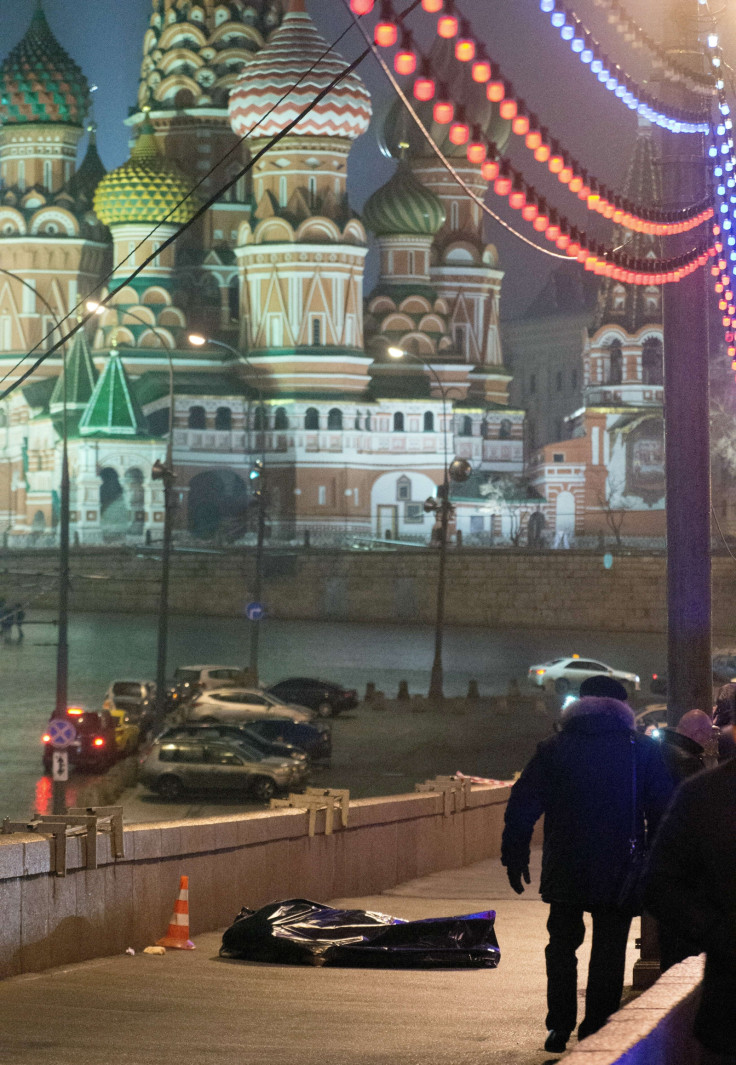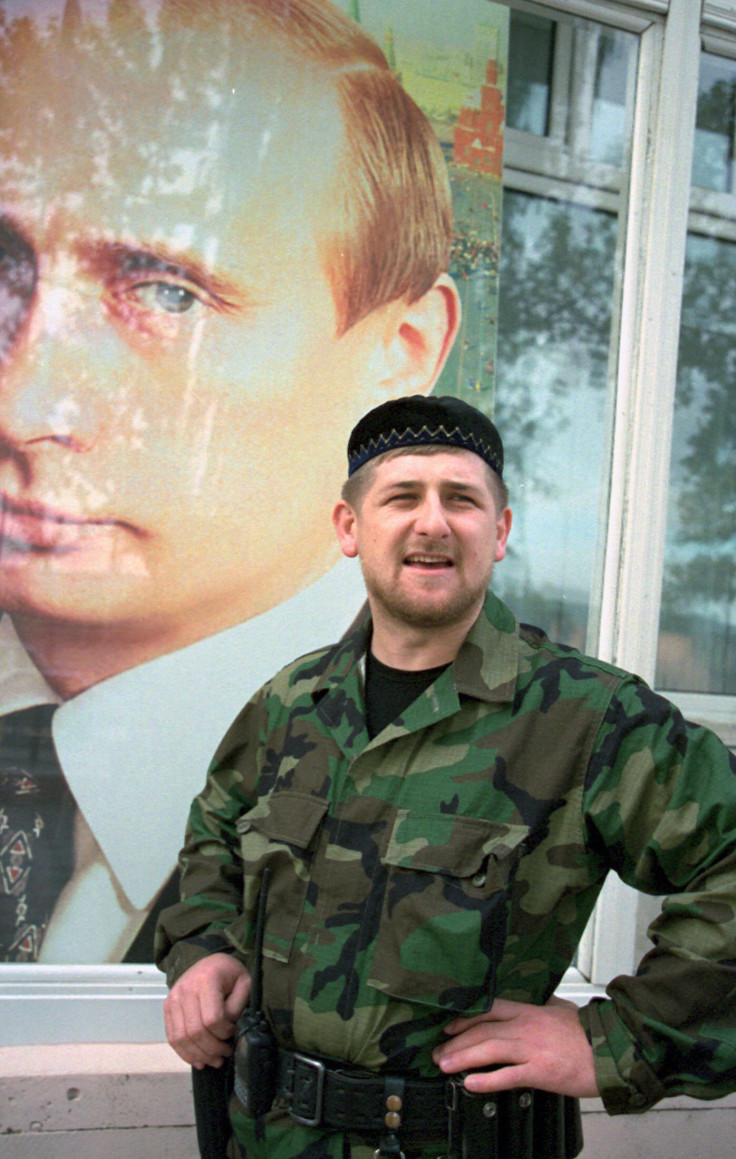Nemtsov murder exposes brutal power struggle at the heart of Russia's security state

Since the assassination of leading opposition politician Boris Nemtsov in February, fear and uncertainty has spread through Moscow.
High profile opposition figures have fled abroad, after an alleged hit list featuring their names circulated in the Russian media.
Russian president Vladimir Putin inexplicably disappeared from public for 11 days and rumours that he had fallen seriously ill or that he had been ousted in a coup began to spread. When he reappeared in St Petersburg on Monday, 16 March no explanation was given for his absence.
Sean Guillory, a postdoctoral fellow at the University of Pittsburgh and author of the acclaimed blog analysing Russian politics, argues that behind these events lies a brutal power struggle being waged at the heart of the Russian state, pitting the KGB's successors, the FSB, against security forces linked to Chechen strongman Ramzan Kadyrov.
"There have long been tensions between the FSB and Kadyrov, and Kadyrov has enjoyed the support of Putin quite closely, clearly," Guillory told me.
Taking power after the assassination of his father in 2004, Kadyrov has brutally asserted control over the insurgency-ridden, Muslim majority Chechen province in southern Russia, earning Putin's backing in the process, and billions in Kremlin funding.

However, critics argue that Putin may have created a monster in Kadyrov, who is alleged to have played a role in some of the most notorious political murders in recent Russian history, including that of opposition journalist Anna Politkovskaya in 2006, and who is now attempting to assert his authority far beyond the boundaries of the remote Caucasus state.
"Kadyrov, by everyone's account, is trying to get a job in the centre [Moscow], and is trying to get promoted out of Chechnya. That has made the conflict even starker, because while the FSB has no jurisdiction in Chechnya, Moscow is its turf," said Guillory.
Alexey Malashenko, an expert on the Caucasus at the Carnegie Moscow Center, told the New York Times that Kadyrov was so important to the Kremlin after keeping a lid on Chechnya's Islamic insurgency, he was able to act with impunity, engendering the resentment of the FSB.
"He does whatever he wants, including in Moscow. Nobody can arrest members of his team if there is no agreement with Putin," he said.
What had brought matters to a head, Guillory believes, is the climate of paranoia and hatred spread by Putin, who has in recent speeches whipped up nationalist fervour, condemning a "fifth column" of "national traitors", seeking to undermine Russia from within.
Though there is no evidence linking Kadyrov to the crime, the murder of Nemtsov, some believe, may be a macabre gift for Putin, instigated by the Chechen strongman to demonstrate his absolute loyalty to his backer in the Kremlin.
"The Kremlin has fostered and supported an atmosphere of painting them [government critics] as traitors. This has mobilised elements of society to take things into their own hands.
"They say this murder is a signal to the Kremlin that the patriots are willing and able to take out the enemies of the state," Guillory said.
If he is behind the killing, Guillory believes that it would signal that Kadyrov is stepping up his confrontation with the KGB.
"If he did carry out this murder, he is stepping out right into the centre of the country, outside the Kremlin and taking matters into his own hands, so it is a breach of turf, but it is also a major security issue," said Guillory.
Nemtsov had criticised Kadyrov's relationship with Putin publicly, questioning the wisdom of Putin funding Kadyrov's armed militias, and castigating him for threatening Russian opposition figures.
Two Chechens were charged with the murder of Nemtsov, and were alleged to have carried out the killing in response to Nemtsov's support for French satirical magazine Charlie Hebdo, which published cartoons depicting the Prophet Mohammed.
Kadyrov praised praised one of the men, Zaur Dadaev, who had served in a Chechen security battalion, calling him a "true Russian patriot".
Though the Islamist motivation may be bogus, one theory circulating the FSB is pursuing the Chechen security services to peg back Kadyrov's drive to power and assert its authority.
"For FSB it comes down to a monopoly of violence by the state," argues Guillory. "If somebody else is taking it on themselves to carry out this violence, it does buck against the prerogatives of the security services," said Guillory.
For Guillory, the turf war may explain Putin's recent unexplained and highly atypical public absence.
"One view is that Putin was working seriously to patch this [dispute] up. Some have suggested that he ducked his head under to let it play out. The problem is that Kadyrov is an indispensable person, he has kept a lid on Chechnya."
Indeed, in the wake of the Nemtsov murder, Putin decorated Kadyrov for "many years of conscientious work".
For some, the costs of failing to rein in Kadyrov could be enormous.
"If Kadyrov was allowed to walk away unpunished, he would be taking Putin and the entire Russian leadership hostage, which might be precisely his plan. This would be a threat to the Russian state that the FSB would be legally obligated to fight," writes political consultant Vladimir Frolov in the Moscow Times.
Guillory argues that the murder exposes the workings and frailties of Putin's Russia, in which weakened institutions carry little power to discipline officials, corruption is pervasive, and officials are allowed to run regions as personal fiefdoms as long as they pledge allegiance to the Kremlin.
"It is a system that could easily spin out of control," he remarks.
© Copyright IBTimes 2024. All rights reserved.






